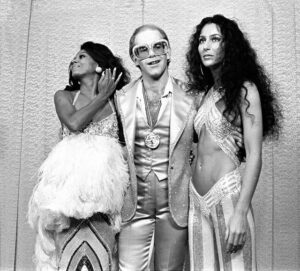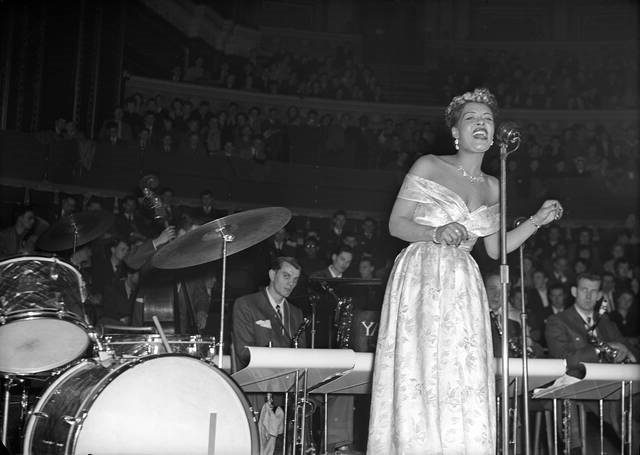Diva Empowering Spirit: In a world where the term “diva” is widely recognized and understood, its meaning can vary greatly depending on who is speaking and who they are referring to. It is a word that transcends cultural and linguistic boundaries, resonating with people worldwide.
The Victoria and Albert Museum in London is currently hosting an exhibition that delves into the multifaceted nature of the term “diva” and its evolution over time. Curated by Kate Bailey, the exhibition aims to reclaim and examine the origins of the word while shedding light on why it has acquired negative connotations in contemporary society.
The Origins of Diva
The term “diva” finds its roots in the Latin word for “goddess.” Initially, in the 19th century, it was adopted by Théophile Gautier, a French critic, to refer to extraordinarily talented soloists in opera. These women, such as the renowned Italian singer Giulia Grisi, were revered and admired from a distance. They possessed a remarkable combination of song, passion, and beauty, captivating audiences with their performances.
Evolving Archetypes
As time went on, the archetype of the diva underwent significant transformations. With the advent of Hollywood talkies, divas transitioned from the opera stage to the silver screen. Figures like Marlene Dietrich and Bette embodied the diva persona, captivating audiences with their talent and magnetism.
The diva archetype further expanded to include soul music icons like Aretha Franklin and Nina Simone, who commanded the stage with their powerful voices and impassioned performances. In the realm of pop music, artists such as Rihanna and Lady Gaga embraced diva status, captivating the masses with their larger-than-life personas and boundary-pushing creativity.
The Notorious Diva
Over time, the term “diva” began to acquire negative associations. In the 1930s, gossip columnists started publishing accounts of Hollywood known for their demanding behavior on set. These divas had precise and often extravagant requirements to ensure the perfect atmosphere for their performances.
The media scrutiny of divas like Mariah Carey, whose rumored requests included having a special assistant to handle her used chewing gum, further contributed to the negative perception of divas. The term became synonymous with arrogance, unruliness, and an excessive sense of entitlement.

Read More: Voter Turnout: Unlocking Better Government
Divas and Feminism
The book “Diva: Feminism and Fierceness from Pop to Hip-Hop” explores the intersection of divas and feminism in popular culture. Kirsty Fairclough, the editor of the book, highlights the scolding news coverage directed at confident and successful women like Mariah Carey.
Divas who assert themselves and challenge societal expectations often face backlash, as their confidence and ambition are seen as a threat to the status quo. Despite this, divas have become powerful symbols of self-acceptance, empowerment, and individuality, amplifying the voices of marginalized communities.
Diva as a Gendered Term
Beyoncé’s album “I am… Sasha Fierce” featured a track in which she sang, “A diva is a female version of a hustler.” This line highlights the gendered nature of the term “diva.” While divas have long been celebrated and recognized in various art forms, there is no equivalent term for men who embody diva-like qualities. However, male figures who express themselves flamboyantly, such as Elton John, are sometimes labeled as divas. This demonstrates that the archetype transcends gender and encompasses anyone who defies societal norms and embraces their uniqueness.
The Activist Diva
Throughout history, divas have often been at the forefront of activism and social causes. Diva-ship and activism have gone hand in hand, with iconic figures using their platforms to advocate for change. Marie Lloyd, a diva of England’s music halls in the early 20th century, participated in strikes by theater workers to protest unfair working conditions. Aretha Franklin famously offered to post bail for activist Angela Davis when she was arrested on charges of criminal conspiracy.
Lady Gaga used her influence to bring attention to the discriminatory “don’t ask, don’t tell” policy, which was ultimately repealed in 2011. The diva persona and activism blend together, demonstrating that divas are not solely focused on glamour but also using their voices to make a difference.
The Glamorous Struggle
While divas are often associated with hyper-consumerist glamour, their journey to success is often marked by hardships and struggles. Figures like Gemma Collins, an English media personality known for her appearance on the reality television show “The Only Way is Essex,” embody the spirit of the diva. Collins recounts her experience of working for meager wages, highlighting her determination and ambition to rise above her circumstances. The diva persona becomes a symbol of resilience, self-assurance, and the ability to overcome adversity.

The Diva’s Appeal
Divas have a significant appeal that resonates with audiences. They are figures to admire due to their unwavering self-acceptance, empowerment, and celebration of individuality. Divas amplify their unique voices, challenging societal norms and encouraging others to do the same. They inspire individuals to embrace their true selves, breaking free from the constraints imposed by society.
The Diva’s Ambivalence
Despite efforts to rehabilitate the term “diva,” it continues to be a subject of debate and ambivalence. Divas, with their commanding presence and assertiveness, challenge established power dynamics and cultural expectations. This often invites criticism and reinforces negative associations. Michael Reinhard, a media studies lecturer at Rutgers University, suggests that the term “diva” encapsulates the ambivalence and misogyny deeply embedded in various stage cultures. Reclaiming the term while confronting its negative associations is an ongoing process.
Conclusion Of Diva Empowering Spirit
The allure of the diva remains strong, captivating audiences with their extraordinary talent, resilience, and unapologetic confidence. Divas are more than just figures of glamour; they represent a celebration of individuality, empowerment, and activism. While the term “diva” may continue to be contested and associated with negative connotations, it remains a beloved concept that has left an indelible mark on popular culture. with their rare breed of talent and charisma, inspire us to embrace our uniqueness and pursue our aspirations with unwavering determination.

